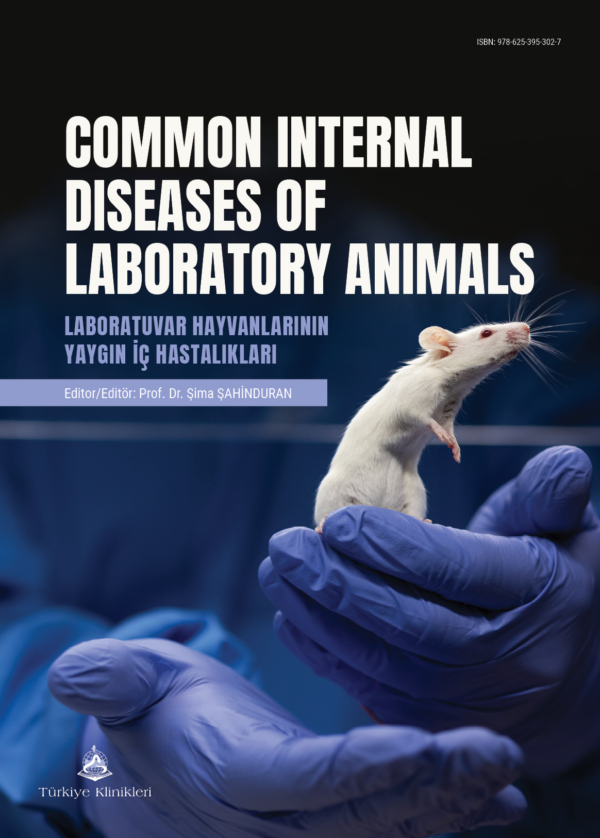Most of the significant advancements in biology and medicine rely on the examination of animals. Laboratory animals are an indispensable tool in the scientific world for addressing fundamental questions related to human health.
From past to present, the health, genetic integrity, and environmental conditions of animals have been considered important factors to be taken into account in the planning of animal studies. Laboratory animals are an integral part of scientific research. Studies conducted on these animals are of great importance in developing new treatment methods for human health, understanding the mechanisms of diseases, and generally increasing medical knowledge. Scientific research centers make significant investments in their studies, contributing to science and gaining substantial economic benefits. To achieve these goals, it is important to understand the care, feeding, breeding, anatomical and morphological characteristics of laboratory animals, as well as their diseases. It is also crucial to understand and manage diseases seen in laboratory animals accurately. Researching diseases in laboratory animals contributes positively to medical knowledge and human health. However, conducting these studies in accordance with ethical and legal rules is of great importance in preserving the welfare and rights of animals. Therefore, it is necessary to rigorously adhere to scientific ethical principles in the process of researching diseases in laboratory animals and developing treatment methods.
In summary, it is impossible to reach scientific conclusions without knowing the care, nutrition, breeding, anatomical and morphological characteristics, and diseases of laboratory animals, and the economic investments made will also be wasted. This book focuses on the vital role of laboratory animals in modern biomedical research and the examination of commonly occurring diseases in these animals. We hope this book becomes a valuable resource for researchers, students, and healthcare professionals working with laboratory animals. By presenting a framework that evaluates the scientific value and ethical responsibilities of animal experiments together, we aim to contribute to future research being based on more robust and ethical foundations.
We would like to thank everyone who contributed to the preparation of this book.
Prof. Dr. Şima ŞAHİNDURAN
Editor
Burdur Mehmet Akif Ersoy University Faculty of Veterinary Medicine, Department of Internal Medicine, Burdur, Türkiye
Bölümler
Parasitic Diseases in Laboratory Animals
Şima ŞAHİNDURAN, Ceren KÖKLÜKAYA
Sialodacryoadenitis Virus in Rats
Naci ÖCAL
Septicemia in Chinchillas
Fulya SEVİN, Duygu DALĞIN
Nutrition of Laboratory Animals
Sesil EFECAN, Süleyman ŞENSOY
Salmonellosis in Laboratory Animals
Serdar PAŞA, Tahir ÖZALP, Hasan ERDOĞAN
Hantavirus Infection in Laboratory Animals
Metin Koray ALBAY, Caner SEVER
Macroscopic Diagnostic Criteria for Diseases of Laboratory Animals
Özlem ÖZMEN
Malocclusion in Laboratory Animals
Ayşe KOCABIYIK
Leptospirosis in Laboratory Animals
A. Cihat TUNÇ, Fatih M. BİRDANE
Diseases of Aging in Laboratory Animals
Abdullah GAZİOĞLU, Kenan SEZER
Nervous System Diseases in Laboratory Animals: Traditional Review
Yücel MERAL, Şamil Buğra KÖSE
Diabetes Mellitus in Laboratory Animals
Mehmet Çağrı KARAKURUM, Işınsu AYTOP
Mycoplasmosis in Laboratory Animals
Sercan Hüseyin BAYENDUR, Abuzer ACAR
Pasteurellosis in Laboratory Animals
Merve İDER, Amir NASERİ
Actinomycosis in Hamsters
İlknur KARACA BEKDİK, Öznur ASLAN
Dermatophytosis in Laboratory Animals
Ali Haydar KIRMIZIGÜL, Mert SEZER, Yusuf Umut BATI
Sendai Virus Infection in Rats and Mice
Aybars AKAR, Özge Sevinç KORKMAZ AKAR
Tyzzer’s Disease in Gerbils
Şima ŞAHİNDURAN, Ali Burak DÖRTKARDEŞ
Mouse Hepatitis Virus
Alanur BAKIR, Ceren DİNLER AY, Bülent ULUTAŞ
Enteric Coronavirus Infection in Rabbits
Feyyaz KAYA


